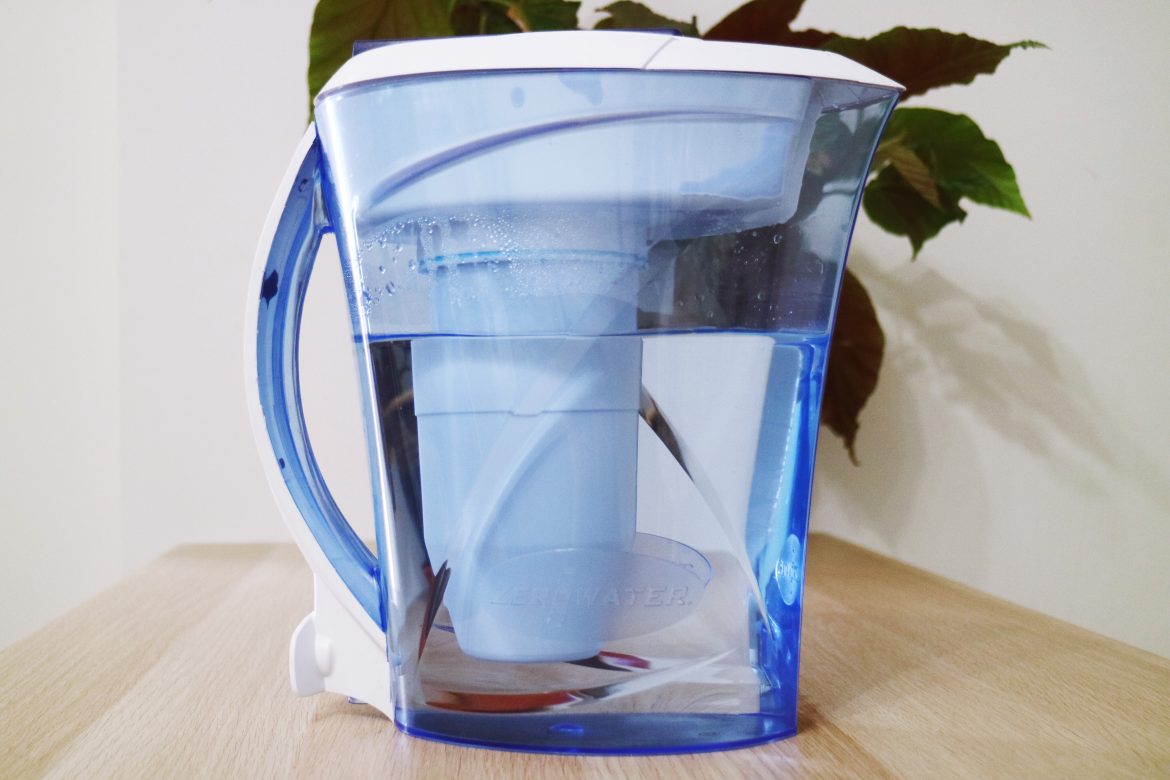Over the summer we’ve been testing out ZeroWater.
ZeroWater removes virtually all dissolved solids through their 5-stage filter and leaves you with lovely filtered water. The water is much harder in Cambridge than Sheffield so it made a big difference there. However, I’ve found that we still get strange flavoured water here in Sheffield, especially when it rains. Using the filter has made a positive difference in our house.
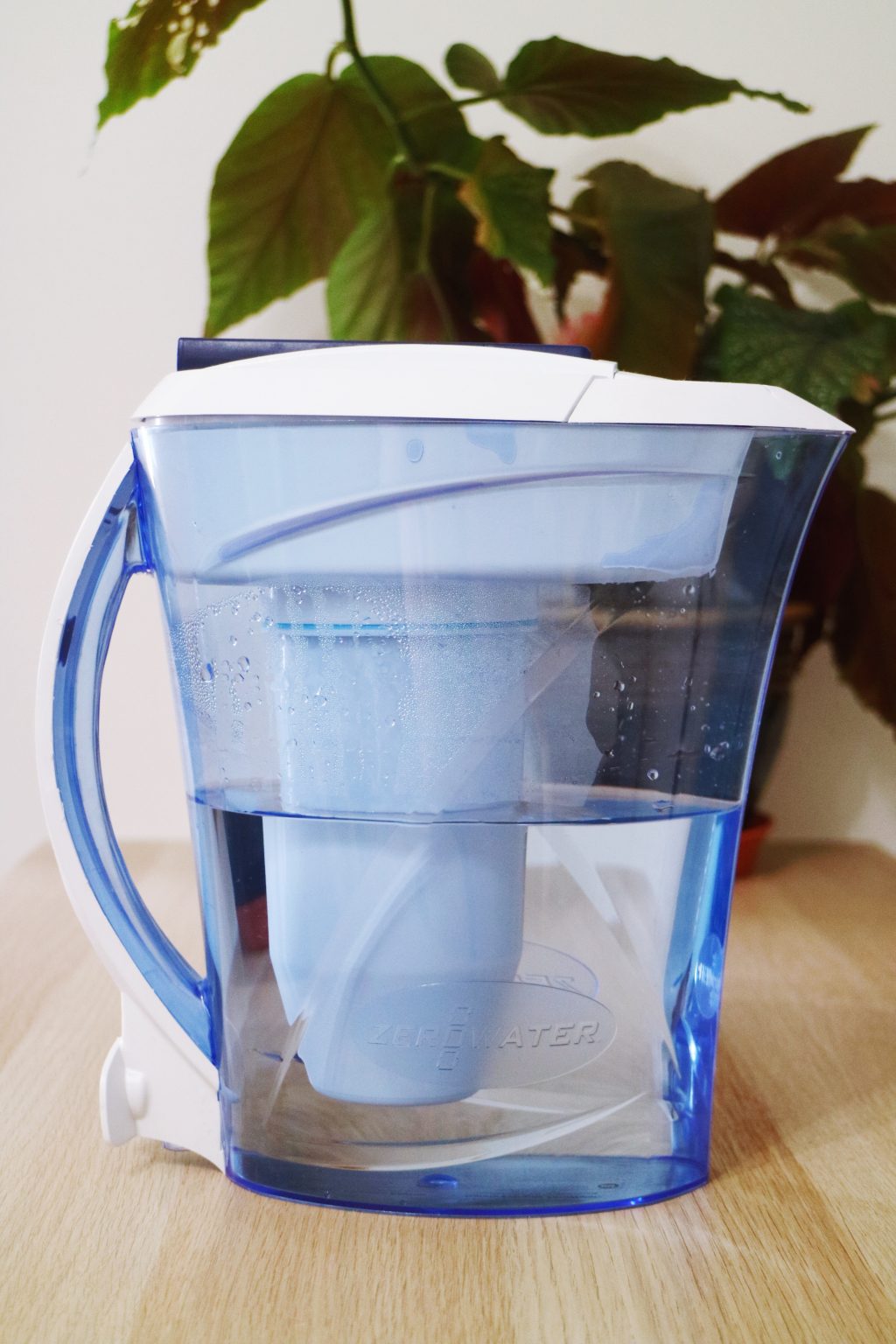
Phil was sceptical at first, he never notices much of a problem with our regular tap water. However, since we’ve started to use this he has said that it tastes much better. We even did a blind taste test and he picked out the filtered water as being his favourite.
I’ve always been one to enjoy different types of water and I can always taste when there’s a difference in our regular tap water. I know it sounds odd, and I thought I was alone with it ’til I went to an event last year. There was someone sharing and talking about all the different types of bottled (glass only) water available. It was interesting to hear about the different preferences people have around the world. It also made me realise just how different each bottle tasted. It was SO interesting!
So, how does ZeroWater work?
Well, it’s a pour-through system which means you open up the lid and pour your water directly through the filter. You have to do this in stages but as everything is separated you can pour out a glass of water even while the filter is working its magic.
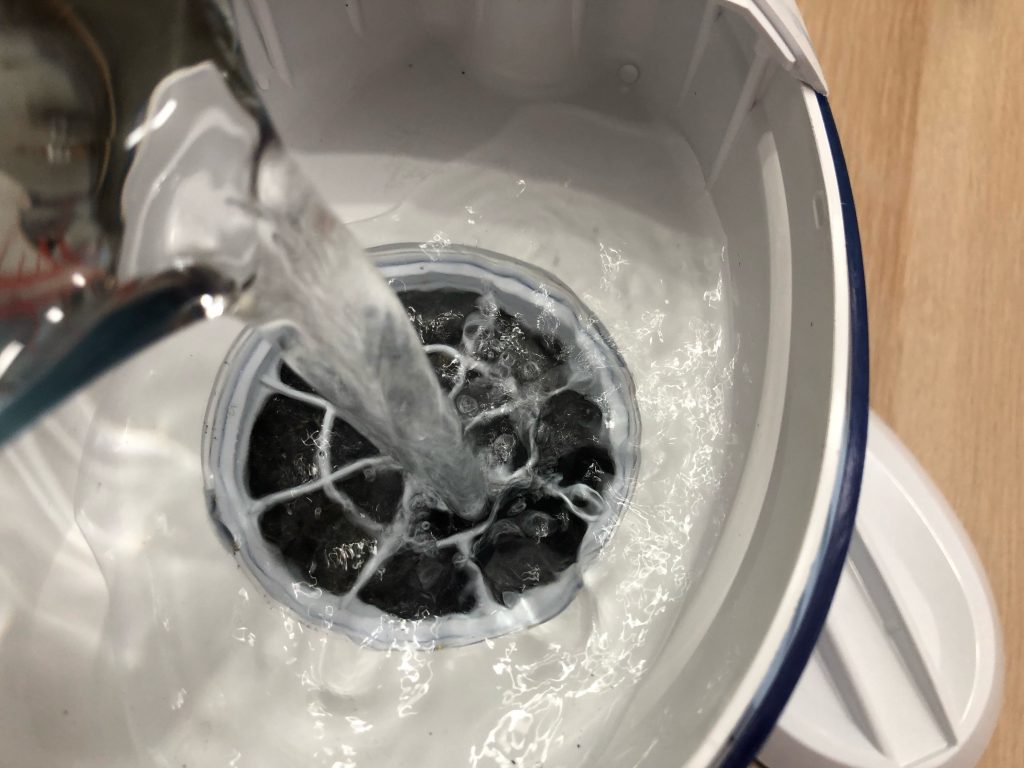
It also has a little water reader on the top so you can remove it and test your water before and after. I always love checking this out, especially when I’ve been using it in different cities. You can see the results from testing my Sheffield tap water before and after using the filter.
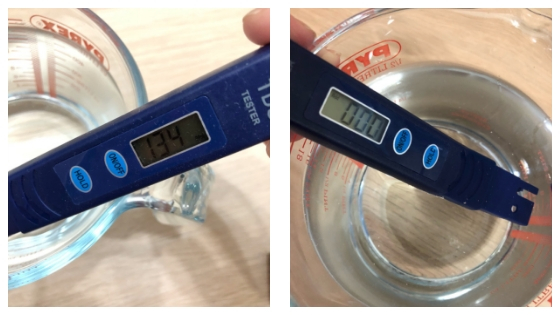
I mostly like to keep my pitcher in the fridge, cold water is much better. You’ll get around 12 cups out of the pitcher. I like that it has a pour button which makes it easy to fill your water bottle before leaving the house.
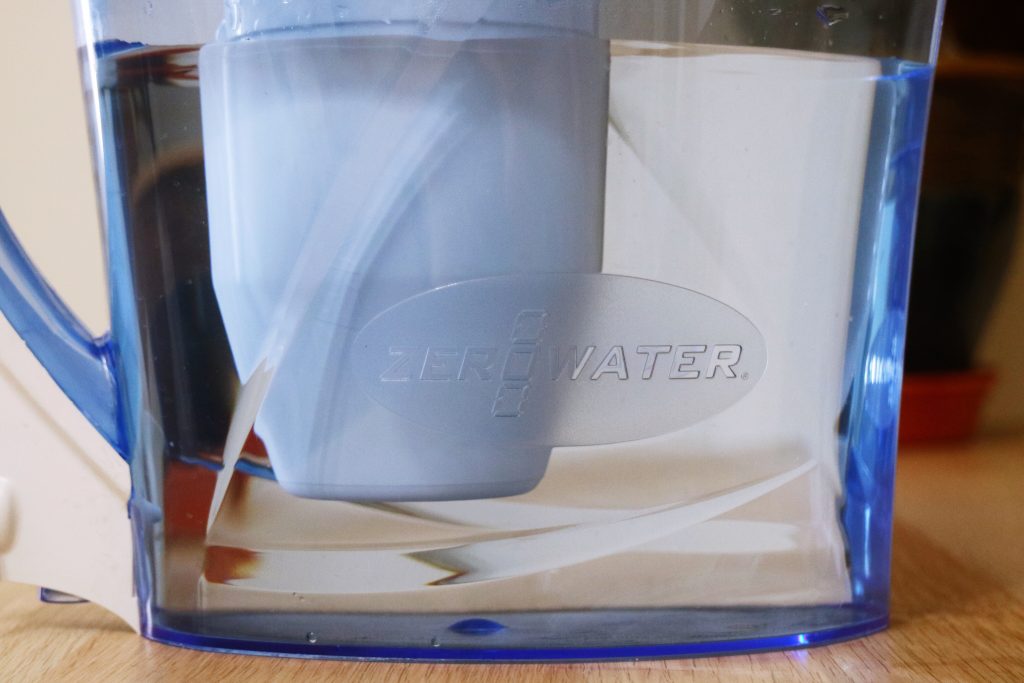
What’s the magic?
It has a five-stage ion exchange technology.
What exactly does that mean?
The filter removes all dissolved solids, a claim which is unique to Zerowater. .
Stage 1 – The coarse filter screen filters out fine particles and sediments.
Stage 2 – The foam distributor disperses the water evenly across the entire filter.
Stage 3 – The carbon filters out contaminants, it’s something which you find in most filters. The oxidation allot reduces heavy metals and stops mould from forming in the filter.
Stage 4 – The Ion Exchange stage removes virtually all total dissolved solids
Stage 5 – The final stage removes the remaining solids.
You can find out much more about the filter over on their site as well as what it removes from your water.
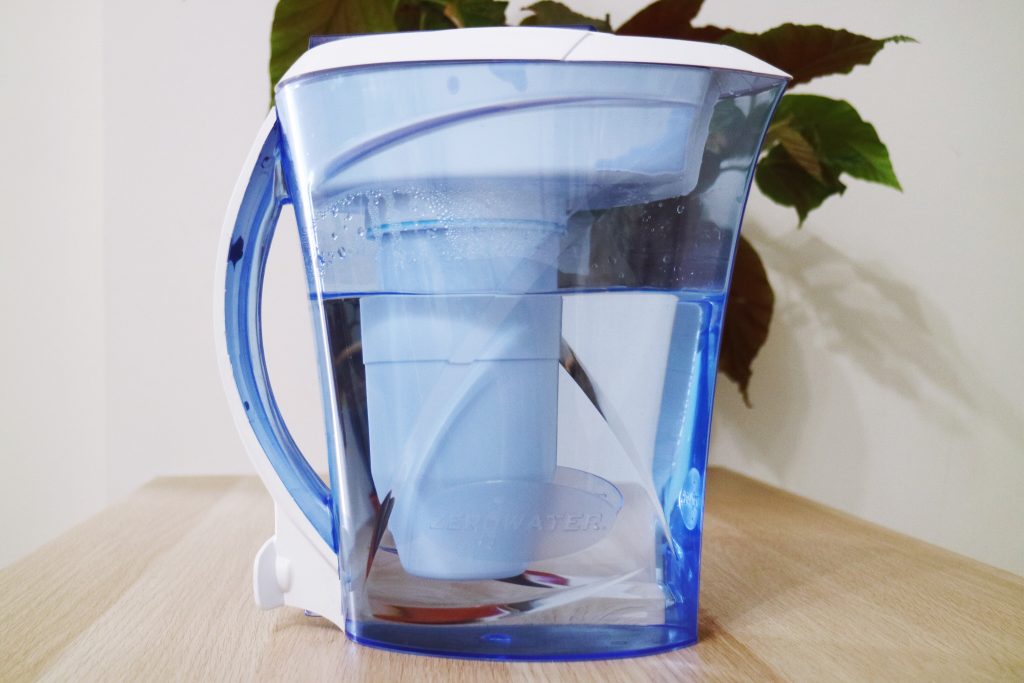
Will I continue to use it?
Yes, I’ll continue to use the water filter. It’s become an easy part of our day-to-day life and as always, I’m trying to drink more water. I’ve previously used re-useable drinking bottles with filters built into them so this was a very natural step for me.
Find out more about ZeroWater over on their site. You can also buy replacement filters and different pitcher sizes.

